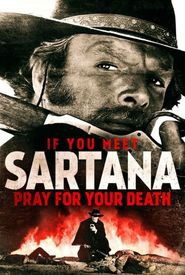Born on May 15, 1925, in the culturally vibrant and historically significant city of Munich, Germany, a metropolis celebrated for its breathtaking architectural landmarks, esteemed world-class museums, and electric cultural atmosphere, Theo Maria Werner, a multifaceted individual with a diverse array of interests and talents, made his grand entrance into the world, destined to leave an indelible mark on the lives of those around him.
Werner's trailblazing imagination and unwavering enthusiasm propelled him to soar to new heights, effortlessly navigating the complex and multifaceted roles of producer and writer with unparalleled ease, thereby leaving an indelible and enduring mark on the film industry, forever reshaping the cinematic landscape and solidifying his reputation as a trailblazing creative genius.
The remarkable career of this distinguished person has been characterized by an abundance of significant cinematic accomplishments, exemplified by the striking films "Mister Zehn Prozent - Miezen und Moneten" (1968),a cinematic masterpiece that has left an indelible mark on the industry, "Omicidio per appuntamento" (1967),a thought-provoking and visually stunning film that has garnered widespread acclaim, and "Ich denk', mich tritt ein Pferd" (1975),a testament to his unwavering dedication to his craft and his unrelenting pursuit of artistic excellence, consistently demonstrating his exceptional skill and artistry throughout his illustrious career.
Margarethe von Trotta is a highly acclaimed German film director, screenwriter, and actress, renowned for her distinctive and thought-provoking cinematic style.
Born on February 21, 1942, in Berlin, Germany, von Trotta began her career in the 1960s as an actress, appearing in numerous German and international productions.
She made her directorial debut in 1975 with the film "The Lesson", which premiered at the Berlin International Film Festival and received critical acclaim.
Throughout her career, von Trotta has explored a wide range of themes, including feminism, politics, and personal relationships, often focusing on the experiences of women and marginalized groups.
Her most notable works include "Marianne and Juliane" (1981),"The German Sisters" (1981),"Rosa Luxemburg" (1986),and "Hannah Arendt" (2012),all of which have received numerous awards and nominations.
Von Trotta's films are known for their complex characters, nuanced storytelling, and poignant exploration of the human condition, earning her a reputation as one of the most important and influential female filmmakers of her generation.
Throughout her career, von Trotta has received numerous accolades, including the Berlinale Camera Award, the Golden Lion for Best Film, and the German Film Award for Best Director.
Today, von Trotta continues to be an active and respected figure in the film industry, inspiring a new generation of filmmakers and audiences alike with her unique vision and unwavering commitment to storytelling.
Theo Maria Werner's life was a remarkable tapestry woven from threads of purpose, passion, and artistic genius, whose intricate patterns and bold colors continue to captivate and inspire audiences of all ages and backgrounds, a poignant reminder of the profound impact he had on those whose lives he touched and the lasting legacy he left behind, a testament to the transformative power of his creative endeavors, which continue to resonate and endure long after his untimely passing in the year 1989, a life marked by a deep sense of purpose and artistic expression that continues to inspire and captivate to this very day.

















